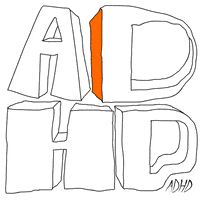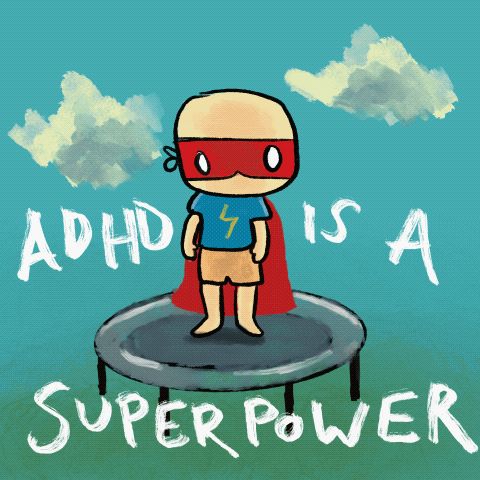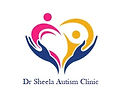

Effective Homeopathy Treatment and Expert Care for Autism, ADHD in Chennai
Neurodevelopmental Disorder Solutions at Dr. Sheela Autism Homeopathy Clinic
Is your child struggling with focus, impulsivity, or hyperactivity? These may be signs of Attention-Deficit/Hyperactivity Disorder (ADHD) a common neurodevelopmental condition that affects both children and adults. At Dr. Sheela’s Autism & Homeopathy Clinic in Chennai, we provide personalized, evidence-based, and compassionate care to help children with ADHD reach their fullest potential without relying on harsh medications.
Understanding ADHD and Its Impact
ADHD isn’t just about being “hyper” or “easily distracted.” It is a complex neurological condition involving imbalances in neurotransmitters like dopamine and norepinephrine, which play key roles in attention, emotional regulation, and executive functioning. If left untreated, ADHD can lead to:
-
Academic underachievement and learning difficulties
-
Behavioural issues and strained social relationships
-
Low self-esteem and anxiety
-
Increased risk of depression, substance abuse, and other mental health challenges in adolescence and adulthood
Early intervention is not just beneficial it is crucial.
Why Choose Homeopathy for ADHD?
Homeopathy offers a gentle, non-invasive, and holistic approach to treating ADHD. Unlike conventional treatments that often rely on stimulant medications, homeopathy works by stimulating the body’s innate healing mechanisms, aiming to correct underlying imbalances rather than just suppressing symptoms.
At a medical level, homeopathy addresses:
-
Neurochemical regulation: Homeopathic remedies are selected to help balance neurotransmitter activity, improving attention span and reducing impulsivity.
-
Behavioral and emotional patterns: By taking into account a child’s emotional state, temperament, and developmental history, individualized remedies support emotional resilience and self-regulation.
-
Immune and gut-brain health: Recent studies point to the gut-brain connection in neurodevelopmental disorders. Homeopathy, being holistic, gently supports the digestive and immune systems, creating a healthier overall environment for neurological function.
Dr. Sheela’s Integrative ADHD Care - Compassion Meets Expertise
At Dr. Sheela’s Clinic in Chennai, we go beyond diagnosis. Dr. Sheela, a seasoned expert in neurodevelopmental disorders and homeopathy, offers a unique integrative approach to ADHD care. Our process includes:
-
Detailed developmental and behavioral assessments
-
Customized homeopathic treatment plans tailored to each child's unique constitution and needs
-
Ongoing monitoring and progress evaluation
-
Guidance for parents and caregivers to support a structured, nurturing home environment
-
Collaboration with teachers and therapists to ensure consistent support in academic and social settings
Every child is different and so is their journey. With a deep understanding of ADHD's neurological roots and a commitment to safe, sustainable treatment, we help children not only manage their symptoms, but truly thrive.
Begin the Journey Toward Focus, Balance, and Confidence
If you're seeking an effective, natural, and child-friendly ADHD treatment in Chennai, you're in the right place. At Dr. Sheela’s Autism & Homeopathy Clinic, we’re transforming lives one child, one family at a time.
Schedule a consultation today and let us help your child move toward a calmer, more focused, and empowered future.


ADHD stands for Attention-Deficit/Hyperactivity Disorder. It's a neurodevelopmental disorder that affects both children and adults. People with ADHD may have difficulty with attention, hyperactivity, and impulsiveness, which can interfere with functioning and development in various aspects of life such as school, work, and relationships.
Key features of ADHD include:
1. Inattention: Difficulty sustaining attention, organizing tasks, following through on instructions, and often making careless mistakes.
2. Hyperactivity: Excessive motor activity, such as restlessness, fidgeting, or difficulty remaining seated.
3. Impulsivity: Acting without thinking, interrupting others, and having difficulty waiting for their turn.

ADHD Homeopathy Clinic in Chennai

Types of ADHD
ADHD (Attention-Deficit/Hyperactivity Disorder) can be categorized into three main types, based on the predominant symptoms a person exhibits. These types are:
-
Predominantly Inattentive Presentation: This type was previously known as ADD (Attention Deficit Disorder). Individuals with this presentation primarily struggle with inattention. They may have difficulty sustaining attention, following through on tasks, and organizing activities. They might also be easily distracted and forgetful in daily activities.
-
Predominantly Hyperactive-Impulsive Presentation: People with this type primarily display symptoms of hyperactivity and impulsivity. They may fidget or squirm frequently, have difficulty staying seated, talk excessively, interrupt others, and have trouble waiting their turn.
-
Combined Presentation: This is the most common type of ADHD. Individuals with this presentation exhibit both inattentive and hyperactive-impulsive symptoms. They may struggle with attention, hyperactivity, and impulsivity across various situations.
Causes of ADHD
The exact causes of ADHD (Attention-Deficit/Hyperactivity Disorder) are not fully understood, but research suggests that it is likely influenced by a combination of genetic, neurological, and environmental factors. Here are some key factors that are thought to contribute to the development of ADHD:
1. Genetics: ADHD tends to run in families, indicating a strong genetic component. Studies have shown that genes play a significant role in the risk of developing ADHD. Certain genetic variations affecting neurotransmitter systems (such as dopamine) and brain development may contribute to ADHD symptoms.
2. Brain Structure and Function: Differences in brain structure and function have been observed in individuals with ADHD. Areas of the brain involved in attention, impulse control, and activity level may develop and function differently in people with ADHD compared to those without the disorder.
3. Neurotransmitter Imbalance: Neurotransmitters are chemicals in the brain that transmit signals between nerve cells. Imbalances or dysregulation in neurotransmitters, particularly dopamine and norepinephrine, have been implicated in ADHD. These neurotransmitters play important roles in regulating attention, behavior, and impulse control.
4. Environmental Factors: Certain prenatal and early childhood factors may increase the risk of developing ADHD, including:
5. Prenatal exposure to substances: Maternal smoking, alcohol use, or exposure to toxins during pregnancy.
6. Premature birth or low birth weight: These factors have been associated with higher rates of ADHD.
7. Early childhood exposure to lead: Lead exposure has been linked to ADHD symptoms.
8. Social and Psychological Factors: Although not direct causes, factors such as parenting practices, family dynamics, and social environments
may influence the expression and severity of ADHD symptoms.
It's important to note that ADHD is a complex disorder with varying degrees of severity and presentation.
Symptoms of ADHD
ADHD symptoms can manifest differently depending on the age of the individual. Here's a breakdown of how symptoms may present across different age groups:
Preschool-Aged Children (Ages 3-5):
-
Difficulty following instructions or finishing tasks.
-
Easily distracted or forgetful in daily activities.
-
Constantly in motion, often running, climbing, or squirming when expected to be still.
-
Difficulty playing quietly.
-
Talks excessively.
-
Impulsive behaviors such as grabbing toys from other children or interrupting conversations.
School-Aged Children (Ages 6-12):
1) Inattention:
-
Poor attention to detail, makes careless mistakes.
-
Difficulty organizing tasks and activities.
-
Frequently loses or misplaces items.
-
Easily distracted by extraneous stimuli.
2) Hyperactivity:
-
Fidgets or squirms in seat.
-
Runs or climbs excessively.
-
Talks excessively.
3) Impulsivity:
-
Blurts out answers before questions have been completed.
-
Interrupts or intrudes on others.
Adolescents (Ages 13-17):
1) Inattention:
-
Difficulty organizing tasks.
-
Forgetfulness in daily activities.
-
Avoids tasks requiring sustained mental effort.
2) Hyperactivity:
-
Fidgets or taps hands or feet.
-
Difficulty remaining seated in class or other situations.
3) Impulsivity:
-
Interrupts conversations or activities of others.
-
Takes risks without considering consequences.
Adults (Ages 18 and older):
1) Inattention:
-
Difficulty sustaining attention in work or social situations.
-
Poor time management and organizational skills.
-
Difficulty completing tasks.
2) Hyperactivity:
-
Restlessness.
-
Difficulty relaxing.
3) Impulsivity:
-
Impulsive spending or decision-making.
-
Difficulty waiting their turn in conversations or activities.
It's important to note that not all individuals with ADHD will exhibit all symptoms, and symptoms can change over time.
ADHD Symptoms in Adults
Symptoms of ADHD may change as you get older. They include:
-
Often being late or forgetting things
-
Restlessness
-
Trouble controlling anger
-
Impulsiveness
-
Trouble staying organized
-
Procrastination
-
Easily frustrated
-
Often bored
-
Trouble concentrating when reading
-
Mood swings
-
Depression
-
These symptoms often cause you to have trouble at work and in relationships.

